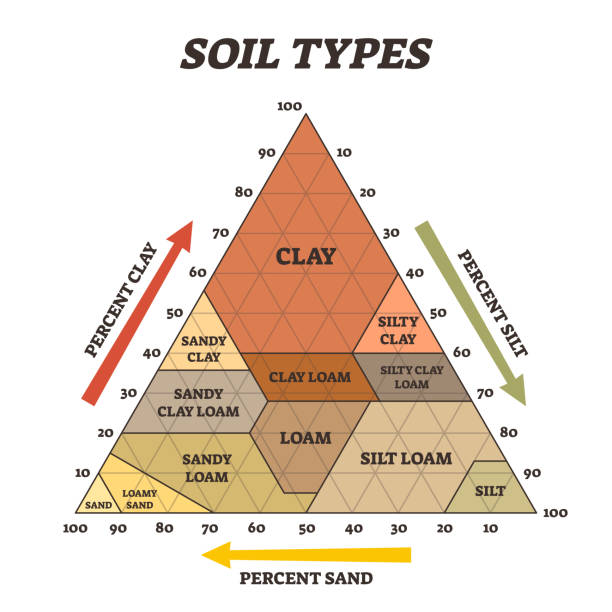The Economic Importance of Loamy Soil in Nigeria

The Economic Significance of Loamy Soil in Nigeria
In the diverse and agriculturally rich landscapes of Nigeria, soil plays a pivotal role in shaping the economy. Among the various soil types, loamy soil holds a special place due to its unique properties and contributions to agricultural productivity and, by extension, the nation’s economy.
Understanding Loamy Soil
Loamy soil, often regarded as the gardener’s best friend, is a well-balanced mixture of sand, silt, and clay. This combination bestows loamy soil with several desirable characteristics, including:
- Optimal pH Balance: Loamy soil typically has a neutral pH, making it suitable for a wide range of crops.
- Good Drainage and Retention: The balanced texture allows loamy soil to drain well yet retain sufficient moisture.
- Rich in Nutrients: Loamy soil is often rich in organic matter and nutrients, essential for healthy plant growth.
Economic Importance of Loamy Soil in Nigeria
- Boosting Agricultural Productivity: Nigeria’s economy is heavily reliant on agriculture, which contributes significantly to the nation’s GDP and employment. Loamy soil, found extensively in regions like the Niger Delta and other fertile parts of Nigeria, supports the cultivation of various crops such as cassava, yams, rice, and maize. Its fertility enhances crop yield and quality, directly impacting the agricultural output and income of farmers.
- Enhancing Food Security: The productivity of loamy soil is a key factor in ensuring food security in Nigeria. With its ability to support diverse crops, loamy soil plays a crucial role in sustaining the nation’s food supply, especially in the context of a growing population.
- Supporting Economic Diversification: Nigeria’s economic diversification efforts can benefit greatly from loamy soil. The soil’s versatility supports the cultivation of cash crops like cocoa and oil palm, fostering the growth of agribusinesses and reducing dependency on oil revenues.
- Promoting Export and Trade: The quality of crops grown in loamy soil can boost Nigeria’s export potential. By producing high-quality agricultural products, Nigeria can strengthen its position in international markets, leading to increased foreign exchange earnings.
- Encouraging Sustainable Practices: Loamy soil’s natural fertility reduces the need for chemical fertilizers, encouraging sustainable agricultural practices. This aspect is crucial for long-term environmental health and aligns with global efforts towards sustainable farming.
Challenges and Management
Despite its advantages, managing loamy soil for sustainable use poses challenges. Soil erosion, nutrient depletion, and the impact of climate change are significant concerns. Implementing soil conservation techniques, sustainable farming practices, and effective land management policies are essential to preserve the quality of loamy soil and ensure its continued contribution to Nigeria’s economy.
In summary, loamy soil is a key asset in Nigeria’s economic landscape, particularly in the agricultural sector. Its role in enhancing agricultural productivity, ensuring food security, supporting economic diversification, and promoting sustainable practices underscores its economic importance. Effective management and conservation of loamy soil are imperative for harnessing its full potential, contributing significantly to Nigeria’s economic growth and sustainability.
